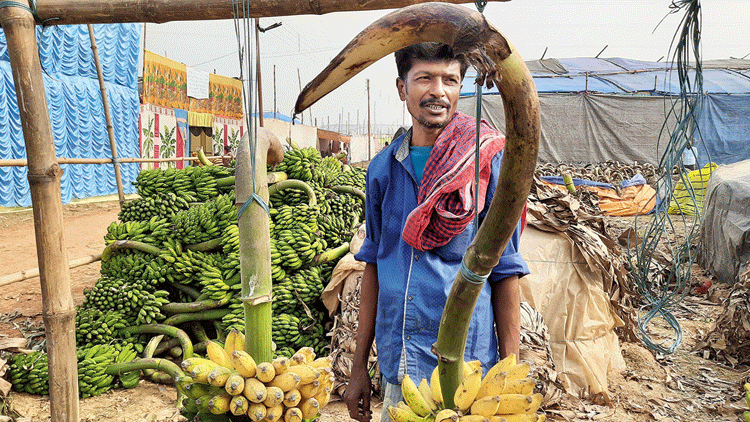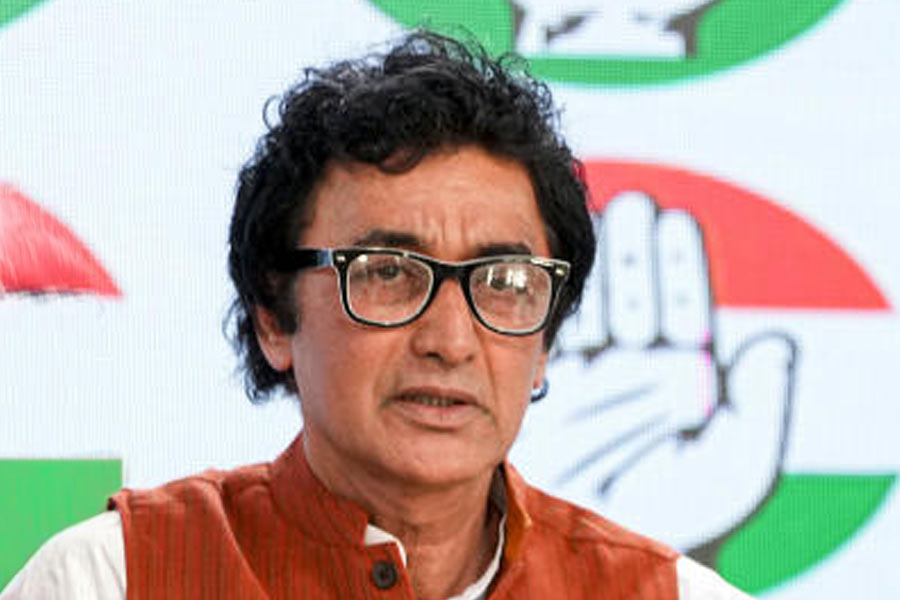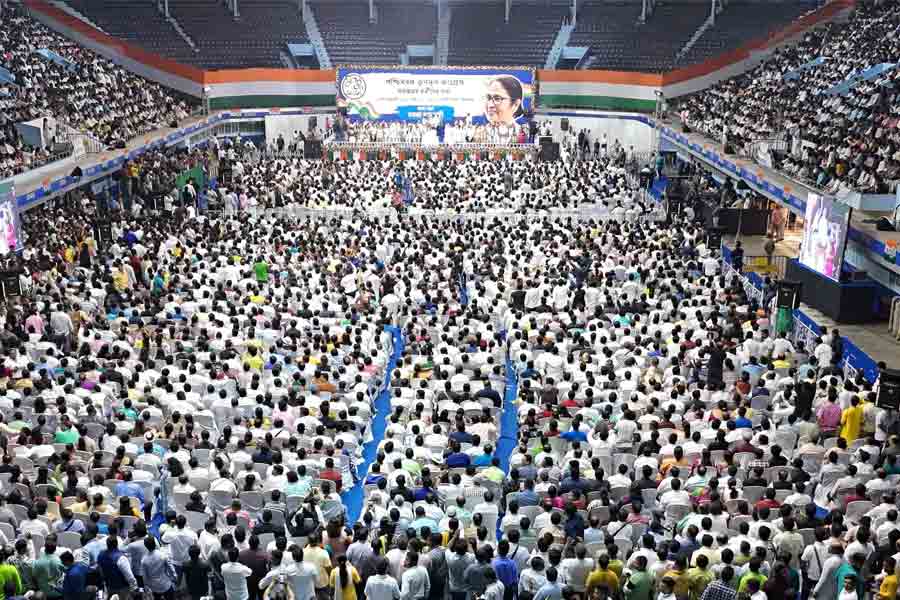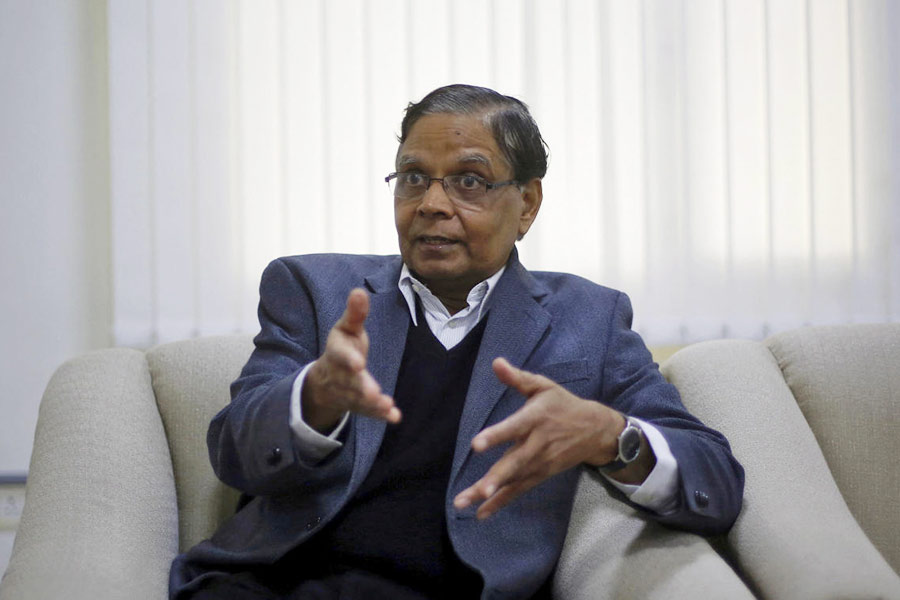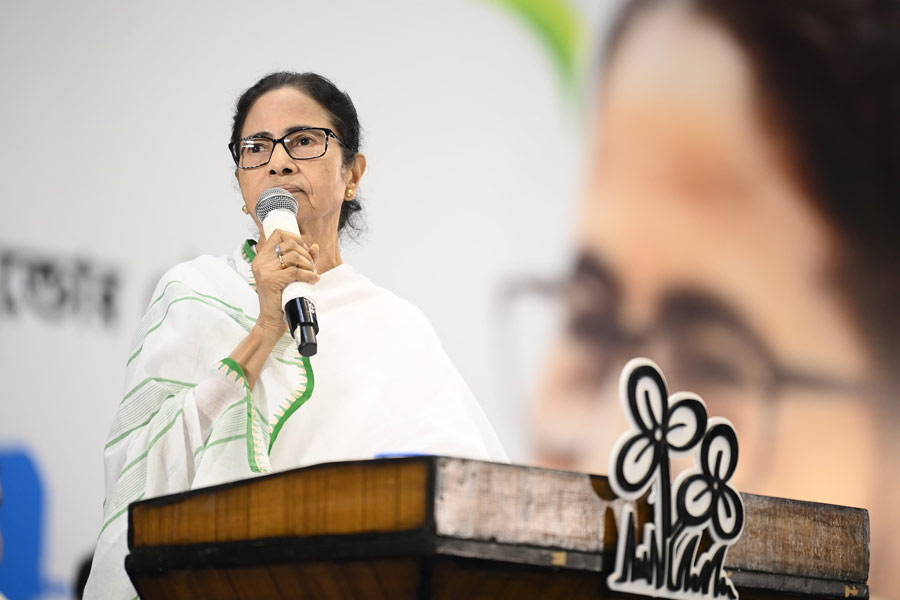Abdur Rahaman from Birbhum’s Dubrajpur was wandering through Joydeb village early on Wednesday carrying three large bunches of bananas on his shoulders.
Abdur, 35, unlike lakhs of other pilgrims, had not come to Joydeb Mela to partake in the early morning dip on the day of Makar Sankranti in the Ajay river. Instead, his yearly pilgrimage to the fair was for something a little less rigorous: buying bunches of bananas to carry home.
“I have been coming here to buy bananas for the last 10 years. This year I came with my cousin Khairul,” Abdur said, adding that they were carrying six bunches of bananas home to Dubrajpur to distribute among relatives.
“I don’t know how this tradition started, but I have been seeing it since I was a child,” he added.
Joydeb village in Birbhum’s Illambazar, 26km from Santiniketan, is home to the famous rural fair known as the Joydeb-Kenduli Mela, a melting pot of cultures and communities through the centuries.
The fair is observed in the memory of the 12th century polymath and poet Joydeb, who penned the Geet Gobinda epic that describes the lives of Krishna, Radha and the Gopis of Vrindavan in verse. Local legend dictates that Joydeb spent his life in this village, which took on his name centuries ago.
The three-day Joydeb-Kenduli Mela is organised by the Bengal government and is held surrounding the auspicious date of Makar Sankranti, parallel to the iconic Ganga Sagar Mela at the southern tip of the state. Government sources said on Wednesday that at least four lakh pilgrims took a dip in the river on Wednesday morning.
Like Abdur, another visitor to the fair on Wednesday was 45-year-old Jasimuddin Sheikh. The Joydeb resident was also walking home with six bunches of bananas on his shoulders when he spoke to this newspaper in the morning.
“If you don’t send a bunch of bananas from the Joydeb fair to relatives’ homes, it is seen as disrespect,” said Jasimuddin, who has lived in Joydeb all his life.
“The Joydeb fair is in celebration of Makar Sankranti, but Muslim people are also deeply connected with the fair. The tradition of coming here to buy bananas is ancient among the communities. Though we don’t know the exact history, we are sure it is a tradition,” said Aloka Goswami, an administrator of an ashram in Joydeb.
“It is a custom and a courtesy for many Muslim families in the area to send these bananas to their relatives during the fair,” Goswami added.
Abdur said he too did not know the precise origin of the tradition, but had grown accustomed to it as a child.
“As a child, I would see my grandfather bringing bananas home from this fair. Whenever I asked him why, he said he had seen his grandfather doing it,” Abdur said.
“Gradually I saw that almost all Muslim families in the area practiced the tradition,” he added.
Scholars familiar with the history and culture of Birbhum said the tradition had roots in a culture of secular humanism and brotherhood.
“This is the culture that prevailed in Bengal for hundreds of years, before religious discrimination started. It shows that the Muslim community was proactive in getting involved in a Hindu festival as large as Makar Sankranti,” said Aditya Mukhopadhyay, a scholar researching rural Bengal who has been visiting the fair for the past 45 years.
Groups of banana sellers at the fair, who hail mainly from Hooghly’s Chandernagore and Nadia, said they were familiar with the tradition.
“I have been coming here for the past 35 years to sell bananas, and can confirm that 90 per cent of my buyers are Muslim,” said Lalmohan Das from Chandernagore, adding that the fair was a major source of his annual livelihood.
“I sell at least 2,000 bunches at this fair every year,” he added.

